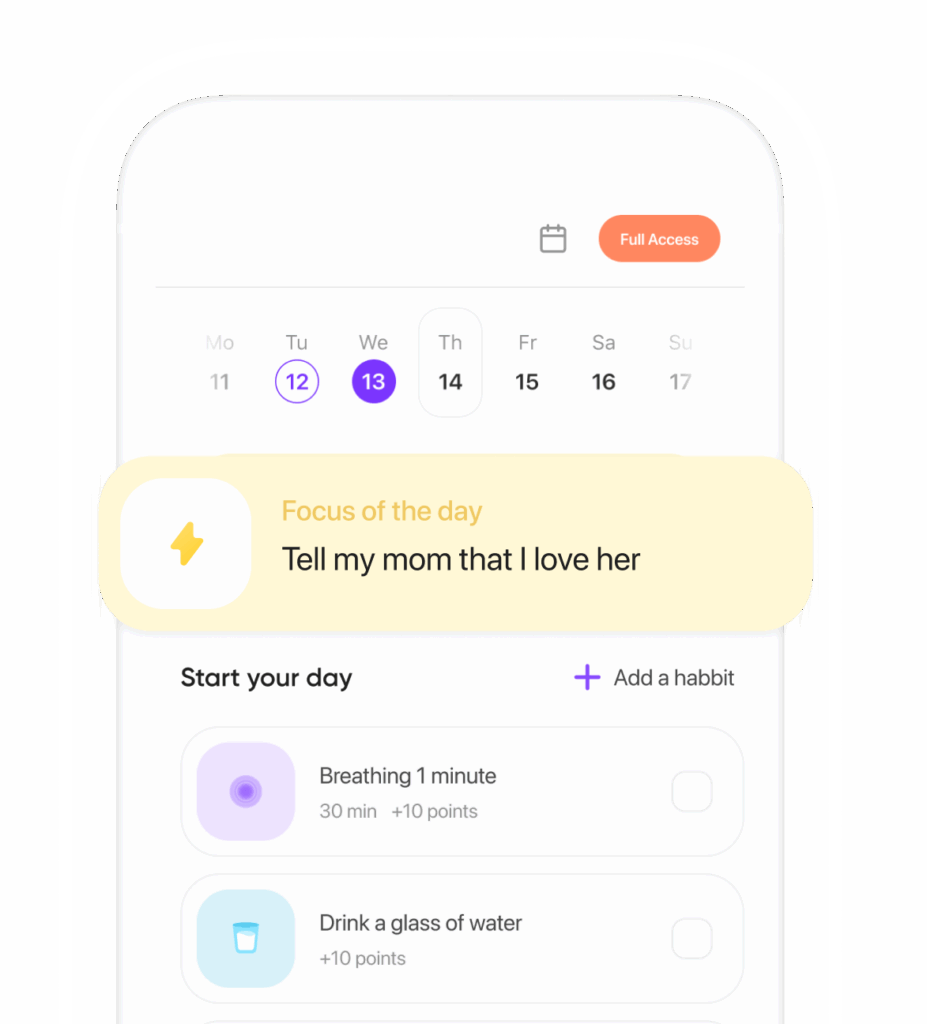Table of Contents
- Understanding Motivation
- The Role of Mindfulness in Motivation
- Strategies for Mindful Motivation
- 1. Set Mindful Goals
- 2. Practice Daily Mindfulness Exercises
- 3. Cultivate Self-Compassion
- 4. Develop Mindful Time Management
- 5. Create a Mindful Work Environment
- 6. Integrate Mindfulness in Physical Activity
- The Benefits of Mindful Motivation
- Enhanced Productivity and Focus
- Improved Emotional Regulation
- Greater Well-Being and Satisfaction
- Strengthened Relationships
- Mindful Motivation in Practice: Real-Life Stories
- Overcoming Obstacles to Mindful Motivation
- Conclusion: Achieve More with Mindful Motivation
- References
Understanding Motivation
The Science of Motivation
Motivation fuels our actions and shapes behaviors. It’s the subtle nudge that prompts us to meet our goals—whether it’s simply rising from bed each morning or climbing the daunting corporate ladder. Research from the Annual Review of Psychology delves into motivation’s roots: it can be intrinsic (from within) or extrinsic (triggered by external rewards). Intrinsic motivation, tied to personal satisfaction, often holds more sway, whereas extrinsic motivation might involve tangible rewards or recognition.
Let’s talk about Self-Determination Theory (SDT), unearthed by psychologists Richard Ryan and Edward Deci. It emphasizes intrinsic motivation and identifies three core psychological needs: autonomy, competence, and relatedness. Fulfill these, and intrinsic motivation blossoms, driving more engagement and persistence.
The Challenges of Sustaining Motivation
Still, hanging on to motivation remains a battle. It waxes and wanes, influenced by stress, fatigue, and outside pressures. A study published in Motivation and Emotion tells us that chronic stress blunts motivation significantly. So, there’s an undeniable need for effective strategies to stay motivated, especially amidst high-pressure environments.
The Role of Mindfulness in Motivation
What is Mindfulness?
Being present and fully engaged—free from judgment—that’s mindfulness. It’s about acknowledging your thoughts, feelings, and bodily sensations with genuine openness. Though rooted in Buddhist traditions, mindfulness has crossed into Western lifestyles as a valuable tool for bolstering mental health and well-being.
Mindfulness and Motivation: The Connection
Mindfulness supercharges motivation by promoting self-awareness and emotional regulation. Regular mindfulness practice encourages a deeper grasp of personal values and goals, aligning actions with these inner drivers. Furthermore, it’s a stress and anxiety antidote—common foes of sustained motivation.
Intriguingly, a study in Psychological Science showed that mindfulness training bolstered self-regulation and goal-setting, leading to heightened personal and academic achievements. By slashing distractions and boosting focus, mindfulness aids in locking onto goals—even when setbacks occur.
Strategies for Mindful Motivation
1. Set Mindful Goals
SMART Goals with a Mindful Twist
Crafting mindful goals starts by weaving the SMART criteria (Specific, Measurable, Achievable, Relevant, Time-bound) with mindfulness principles. Reflect on core values and long-term visions. Do your goals harmonize with these values? Adjust them to echo your true self.
Example: Trade the goal of “losing 10 pounds” for something like “engaging in daily activities that nourish my body and mind.” This pivot underscores intrinsic motivation and holistic well-being.
2. Practice Daily Mindfulness Exercises
Mindful Breathing and Meditation
Infuse mindfulness practices into your daily routine to crank up motivation. Mindful breathing and meditation are versatile—they can be practiced anywhere. Carve out 5–10 minutes each day to zero in on your breath, observing each inhalation and exhalation sans judgment. This routine can sharpen concentration, dissolve stress, and evoke a sense of calm.
A peek into the Journal of Clinical Psychology reveals that even brief mindfulness drills enhance cognitive flexibility and emotional toughness—key elements for maintaining motivation.
3. Cultivate Self-Compassion
Embrace Imperfection
Being kind and understanding towards yourself—especially when facing failure or difficulty—is self-compassion. By accepting imperfection, you foster an inner nurturing that propels growth and motivation.
Dr. Kristin Neff, a forerunner in self-compassion research, underscores its role in keeping motivation alive. Her studies illuminate that self-compassionate individuals are more inclined to set realistic goals, weather challenges, and worry less.
4. Develop Mindful Time Management
Prioritize with Purpose
Effective time management remains crucial for motivation’s longevity. Mindful time management involves prioritizing tasks that echo with your values and goals, ensuring your energy channels towards meaningful activities.
Harness tools like the Eisenhower Box, which categorizes tasks by urgency and importance—smart ways to decide where your efforts should focus. Keep reassessing priorities and stay flexible with your schedule to accommodate life’s changes and aspirations.
5. Create a Mindful Work Environment
Design for Focus
Your environment—it’s a motivation and productivity influencer. Construct a mindful workspace that curbs distractions and fosters focus. Elements like natural light, plants, and soothing colors can elevate mood and concentration.
The Journal of Environmental Psychology found that those in environments with natural elements report higher motivation and well-being. Surround yourself with meaningful objects and reminders of your goals—they uplift motivation.
6. Integrate Mindfulness in Physical Activity
Mindful Movement
Physical activity is a potent motivator; blend mindfulness into your routine, and its benefits amplify. Try mindful movement—concentrate on your body’s sensations during exercise, whether it’s yoga, running, or weightlifting.
The Mindfulness journal demonstrates that individuals embracing mindful movement report greater exercise satisfaction and motivation compared to those solely outcome-focused.
The Benefits of Mindful Motivation
Enhanced Productivity and Focus
Mindful motivation fosters productivity by ushering individuals into a ‘flow state’—where full immersion and task engagement reign. Such focus drives deeper involvement and efficiency.
Improved Emotional Regulation
Mindfulness polishes emotional regulation, empowering individuals to manage stress and negative emotions adeptly. This emotional anchor fortifies sustained motivation and resilience.
Greater Well-Being and Satisfaction
Merging mindfulness with motivation nurtures overall well-being and life satisfaction.
Ready to transform your life? Install now ↴
Join 1.5M+ people using AI-powered app for better mental health, habits, and happiness. 90% of users report positive changes in 2 weeks.
